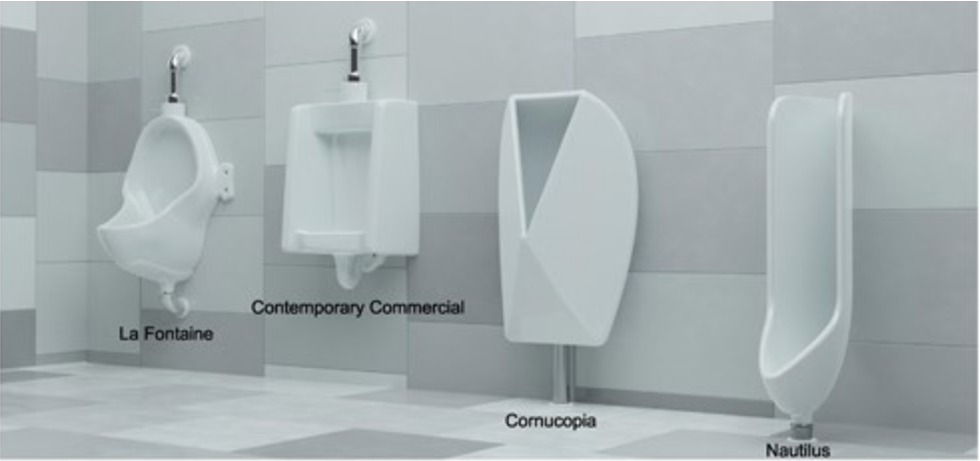At a dark, red-hued club in downtown Los Angeles, a couple dozen people are gathered to celebrate local rapper Richie Reseda, who is marking his 24th birthday by dropping his debut album. Dark velvet curtains are drawn over the windows of the club, and guests settle into black leather seating, drinks in hand. Onstage, the DJ, wearing a t-shirt that reads “Assata Is Welcome Here,” plays Kendrick Lamar and Janelle Monae, warming up the crowd for the main event. This is Reseda’s opportunity to share his album, Forgotten But Not Gone, with an intimate assembly of friends, family and colleagues. Only the young rapper isn’t here. He’s in prison.
Reseda produced much of his album with the help of Damon Turner, founder of the label GREEDY CITY, from the penitentiary where he is serving the fifth year of a 10-year sentence. He recorded verses over the prison phones with Turner, who executive produced and released the album under his label. After GOOD wrote about the release of Reseda’s first single this past summer, he says prison authorities searched his cell, looking for recording devices or mobile phones.
When Reseda does finally appear at his own party, it is as a disembodied voice. His words, from a prison phone call recorded prior to the event, emerge from the speakers. “Everyone who is supporting this by coming to the function …” he says, his voice trailing off. “This is honestly a dream come true for me.”
The complete album, released last week, is a clarion call for the Black Lives Matter movement, a 14-track record that name-checks Michael Brown and Renisha McBride, and condemns police brutality. Forgotten But Not Gone is a significant addition to the catalog of protest music and art that has emerged in the wake of the uprisings in Ferguson and Baltimore, a soundtrack to the struggle against state violence and mass incarceration. But as an autobiographical work, it provides insight into the ways in which institutionalized inequality manifests in the day-to-day lives of people in the U.S.
Turner released the album’s first single a few months ago—a four-and-half-minute diatribe called “28 Hours.” [Full disclosure: Turner’s apparel company, Bulletproof, sells t-shirts through GOOD’s online store.] The title of the track is a reference is to an oft-repeated but oft-disputed claim by the Malcolm X Grassroots Movement that a black person in the U.S. is killed every 28 hours. The track establishes the sound and spirit of the rest of the album, which both lambasts state violence and criticizes gang culture.
“I feel like I’m part of the world again,” Reseda says in his taped message. A few minutes later, an automated message by the prison telephone service, Global Tel Link, interrupts Reseda in the middle of his sentence: “This call and your telephone number will be monitored and recorded.” Reseda continues like nothing happened.
The first time Reseda heard the term “mass incarceration,” he was in high school. Patrisse Cullors and Mark-Anthony Johnson walked into his classroom and began teaching regular workshops on the subject.
Cullors would later become the founder of Black Lives Matter as well as Dignity and Power Now, a nonprofit that advocates for the incarcerated and their families. Johnson would become director of health and wellness for DPN. But when Reseda first met them, they were just local activists and organizers. Reseda remembers them getting involved in a dispute between two of his friends. “There was this dude who wanted to fight me because he made a diss song for one of my homeboys, and I charged him of course. ‘Come to my studio and I’ll record it for you.’ My homie made a diss song back to him, and I charged him too. Man, I was out for the money,” says Reseda, laughing. “They pulled us in and did conflict resolution.” Much of what Cullors and Johnson taught him about mass incarceration “just made sense.”
Reseda’s experiences with authority figures and institutional racism confirmed much of what Cullors and Johnson taught him. In the San Fernando Valley, where he lived for much of his life, he could plainly see how these concepts took form in the daily lives of his neighbors, who were stuck in cycles of poverty and criminalization. “Reseda” is in fact a pen name borrowed from one of his California hometowns, a suburb of the San Fernando Valley. Reseda spent most of his life in that part of the state, bouncing around from Van Nuys, to Arleta, to Canoga Park, all neighborhoods located inside the part of Los Angeles County colloquially referred to as “the Valley.” This part of the county owes its highly diverse demographics to a brutal of history of redlining in Los Angeles. Black and brown homebuyers looking for a place to live were pointed in the direction of Pacoima, Panorama City, and Reseda, among other neighborhoods in the area.
This aggressive form of geographic segregation exacerbated tensions between different racial groups and would eventually contribute to the rise of gang activity and racially charged violence in the Valley. This is the social milieu in which Richie Reseda, born Richard Edmond, was raised.
Still, it was not until late in life that he began recognizing the way racism carved up his community and complicated social relations between neighbors. He was born into a multiracial family, surrounded by other multiracial families. “My dad, he’s a super Christian, black man from the projects in the San Fernando Valley, in Pacoima,” says Reseda, “And my mom is this super middle-class, liberal, reform Jewish woman. For some reason, they decided to get married and start having children.” His grandparents once gifted him with a copy of Black, White and Jewish, the autobiography of Rebecca Walker, Alice Walker’s daughter, and it quickly became one of his favorite books.
It was in middle school that Reseda would be confronted directly with the unsettling realities of segregation. He went to an affluent school in Granada Hills, where underprivileged students were bused in from other parts of the Valley to be instructed alongside “rich suburban kids.” Battles between the Bloods and the Crips, then Los Angeles’ biggest rival gangs, would be reproduced within schoolyard conflicts. Reseda was seduced by gang culture, drawn in by it, but he was a “weird kid,” too, a lover of the Spice Girls and *NSYNC and Hello Kitty. These interests seemed oppositional to those around him, but a young Reseda enjoyed the novelty of being as “subversive” as possible. In his school, he says, you were “either a sports guy, a gang-banger or a rapper. So I just chose the latter two, and it didn’t make me stop doing weird shit, like wearing pink fuzzy slippers to school.”
By 2006, Reseda was in high school in Canoga Park, and he’d already been arrested twice—once for truancy and another time for vandalism. At the time, when the rest of Los Angeles was experiencing a decrease in gang activity, Canoga Park was facing one of its most violent years ever. In the San Fernando Valley overall, gang-related violence was up by 40 percent. Police efforts to combat the violence only worsened the situation, victimizing the region’s black and brown residents with racial profiling and predictive policing, a technique that uses data analysis to foretell potential criminal activity.
Reseda had begun experimenting with music, mixing tracks in a makeshift studio he’d put together himself. “I had a little job working for a state assembly campaign, and I started selling weed when I was 13 so I had a little money to buy stuff like that,” he says. But he was struggling in school and ended up in an academic track for “bad kids,” which is where he met Cullors and Johnson. And for a while, with their guidance, he abstained from gang activities and became involved in local activist circles, organizing with the Bus Riders Union at the Labor Community Strategy Center.
The summer of 2011, Reseda was 19 years old, and he’d landed the best job he’d ever had, at a preschool in Panorama City. He’d also started dating Taina Vargas, a substitute preschool teacher who was in town on a break from graduate school in New Jersey. Things were going well. But a few months later, Reseda found himself sitting in the county jail.
Vargas, now Vargas-Edmond, was a few weeks into her second year of graduate school when she found out that Reseda had been arrested. They had broken up before she returned to New Jersey to continue her studies. She was working on a master’s in diplomacy and international relations, with a specialty in sub-Saharan Africa and economic development. Her experiences living in poverty and struggling with the drug addictions of both of her parents gave her a political sensibility for justice. She saw that her parents’ problems were “structural” and not individual, that they were victims of the war on drugs. But going into grad school, she wanted to work globally. “I bought into American exceptionalism,” she says. “I thought, ‘well, it’s worse in other places.’ I saw myself being, like, an international human rights activist.”
But then Reseda was jailed.
He and two of his friends had been arrested after two different Rite Aid locations in the Valley were burglarized, each only a few days apart. According to Reseda, the plan had been to only rob one of the stores. He’d recently lost his job at the preschool. He had rent to pay and too much pride to ask for help. “I just had this chip on my shoulder, I didn’t want to ask for help,” he says. “I’ll do it myself.”
His friends had heard that these stores sometimes had as much $50,000 in the safe. Reseda’s job was to go in, find the safe, and then tell his friends where the money was. But they could only scrounge up about $1,400 at the first store. A few days later, they hit up a second location—but the cops had followed them.
Reseda recounts what happened with regret, acknowledging over and over again the harm he caused to those Rite Aid employees. He says he had convinced himself they weren’t hurting anyone, that they were only inconveniencing a business. “Like, man, this is a corporation, and you can’t steal from a corporation. Fuck all of corporate America! I had this Robin Hood complex.”
The only evidence they have against him, he says, is a video that shows him entering and leaving the store, without the money. Still, the district attorney went after all three of them for two counts of kidnapping for robbery, four counts of second-degree robbery, and one count of assault with a firearm. “The kidnapping is what carried the life sentence,” says Vargas, who stayed with him throughout the process. “They told the [Rite Aid employees] to ‘move.’ ” California law defines kidnapping as any time a victim is compelled to move through physical force or fear.
Vargas, Cullors, and the local community organized to fundraise enough money to hire a private attorney, someone who could get Reseda a better deal. The D.A. was eventually negotiated down to 10 years for Reseda, 12 years for each of his co-defendants. Reseda pled out to two armed robberies. “It was a confusing and frightening experience,” says Vargas, who stuck with Reseda through the whole process. “It was all just so arbitrary.”
The ordeal forced Vargas to redirect her entire life. After graduate school, she moved back to California, began working with the California state assembly, and co-founded the Monterey County Civil Rights Coalition for Jail Reform. But the year that Reseda was sentenced, Vargas felt like she had a decision to make. “Either I was just going to be a platonic friend and write him here and there, or we were going to continue our relationship and make it serious,” she says. In June 2012, with Cullors as their minister, separated by a pane of glass and surrounded by other prisoners and their families, Vargas and Reseda were married at the county jail.
“Jail is what you make it,” says Reseda. “So we turned it into a wedding hall that day.”
“Suicide, genocide at the same time,” sings Reseda, on his track “28 Hours.” “No one’s on my side so I throw up gang signs. Red and blue lights, yeah, they flashing signs too. / That’s the biggest gang on Earth who pulled up right behind you.” The song is one of the catchiest on his album, and one of the most representational examples from Forgotten But Not Gone, an album which does not flinch in its criticisms of law enforcement and the current political establishment. Another track contains an excerpt of Malcolm X’s homily on the boxer Muhammad Ali. Reseda was influenced by underground political rappers like Immortal Technique, but he didn’t want the political nature of his music to make it inaccessible to a general audience. “Ever since I was young, I knew, the key is to make music that is as catchy and as exciting as this hood/trap/club music, but is as smart as Common’s Like Water for Chocolate,” says Reseda.
The album’s political scope is global—with references to the war on terror and Malala Yousafzai—but it remains quintessentially LA, a byproduct of the Valley and its complicated social dynamics. Track No. 8, titled “Get a Schedule,” features this catchy hook: “Put some lime on that pupusa / some pigs’ fucking with you / tell that swine to get a flu shot. / Put some rooster on that ramen / if them losers give you problems / tell them fools, get a job.” It’s a clever tribute to Los Angeles’ syncretic cultural landscape that doesn’t ignore the class anxieties that underpin it.
“I didn’t think I knew there was going to be an album until May, when he was like, ‘the album’s done,’ ” says Vargas. Reseda wrote the music from prison (he cites a number of current events that occurred during his incarceration) in two notebooks he carries with him everywhere.
The album is not the only thing Reseda has been working on while incarcerated. He’s been organizing with Dignity and Power Now and runs the prison initiative Success Stories, which works towards the rehabilitation of young prisoners. “A few men who had been inside the prison are now Dignity and Power Now members because of Richard,” says Cullors, who founded the organization.
Reseda also helped Vargas put together a bill, AB 512, while she was still working for the state assembly. “He had access to a lot of Department of Corrections reports that I wasn’t able to gain access to because he’s in prison,” says Vargas. “I’m the one who actually wrote it out and pitched it and got it introduced. But after it was introduced, he did a lot of activism inside trying to get folks to write their assembly members and senators in support of the legislation.”
The bill, currently moving through the California legislature, proposes a change to the current prison credit-earning policy, which allows prisoners to earn time off their sentence, or credits, based on their participation in educational, rehabilitative, and skill-building programs. As the law currently stands, prisoners are only eligible to earn credits if they are non-violent offenders, and they’re only capable of earning a maximum of eight weeks off. AB 512, should it be adopted, would allow prisoners to take as much as 18 weeks off their prison time. “The way that we frame punishment as being an effective mechanism of public safety—the evidence doesn’t really show that harsher sentences or criminalizing more activities act as an effective deterrent,” says Vargas, who now works as the state advocate for the Ella Baker Center for Human Rights. “It’s retributive, and it’s expensive.”
Because Reseda was convicted for a violent crime, he isn’t eligible for the credit-earning program, which means he has to serve at least 80 percent of his sentence. His release date, as it stands, is March 30, 2020. In the meantime, he’s going to promote his album and continue his work as best as he can. His fellow prison inmates, he says, are his target demographic.
“This is ultimately my audience,” says Reseda. “This is my experience.”
















 Let us all bow before Gary, the Internet's most adventurous feline. Photo credit: James Eastham
Let us all bow before Gary, the Internet's most adventurous feline. Photo credit: James Eastham Gary the Cat enjoys some paddling. Photo credit: James Eastham
Gary the Cat enjoys some paddling. Photo credit: James Eastham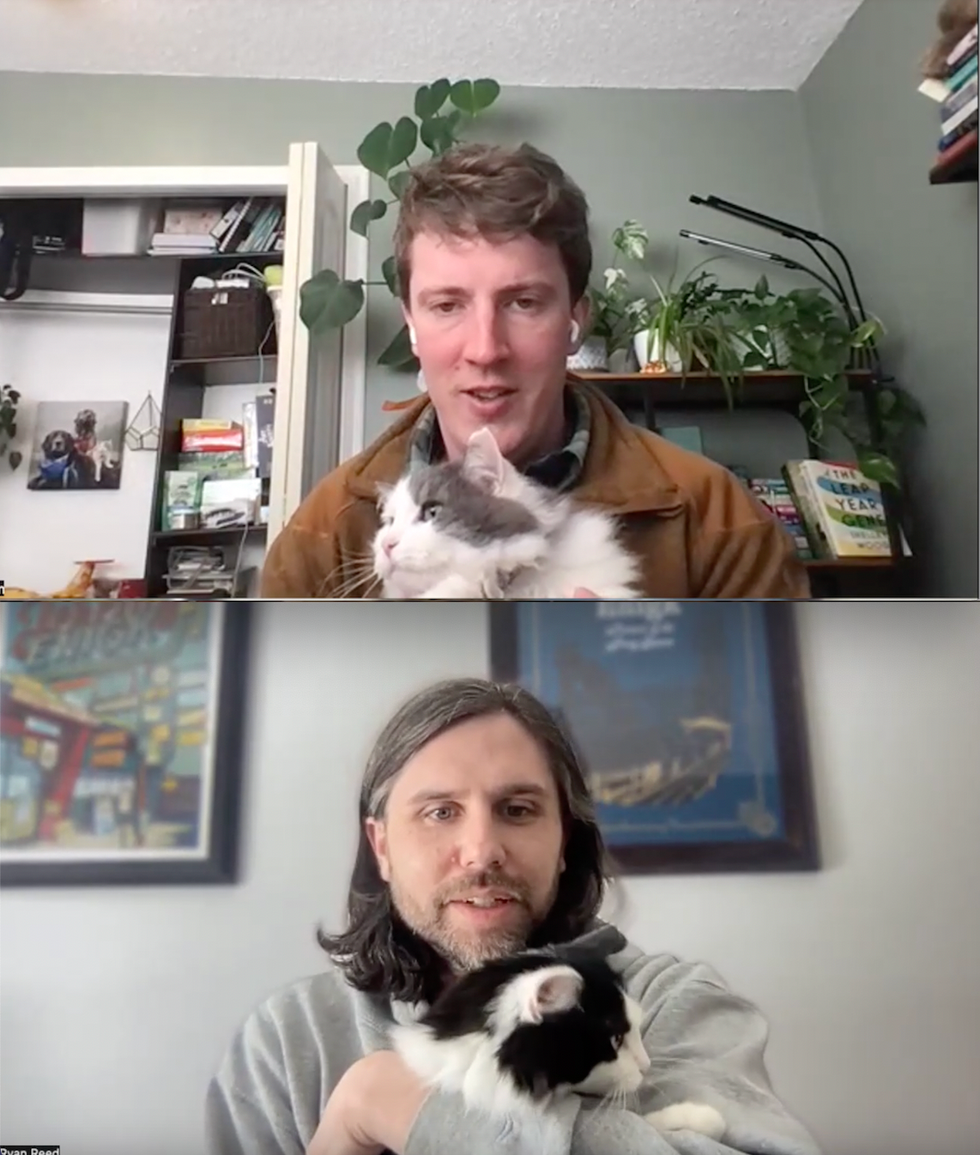 James and Gary chat with Ryan Reed and Tony Photo credit: Ryan Reed
James and Gary chat with Ryan Reed and Tony Photo credit: Ryan Reed

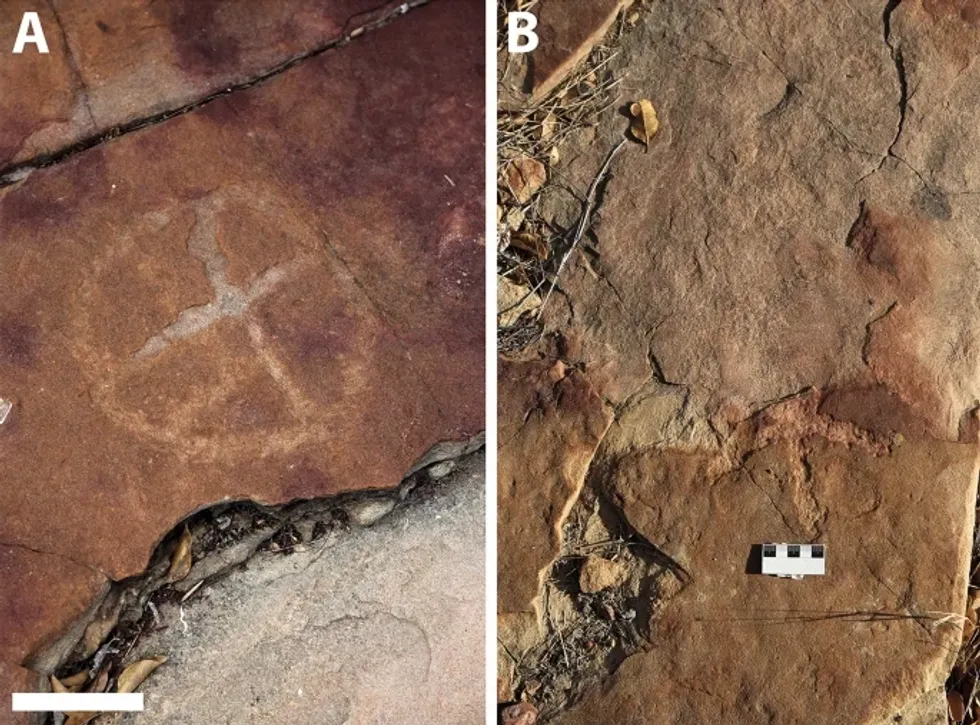 Rock deterioration has damaged some of the inscriptions, but they remain visible. Renan Rodrigues Chandu and Pedro Arcanjo José Feitosa, and the Casa Grande boys
Rock deterioration has damaged some of the inscriptions, but they remain visible. Renan Rodrigues Chandu and Pedro Arcanjo José Feitosa, and the Casa Grande boys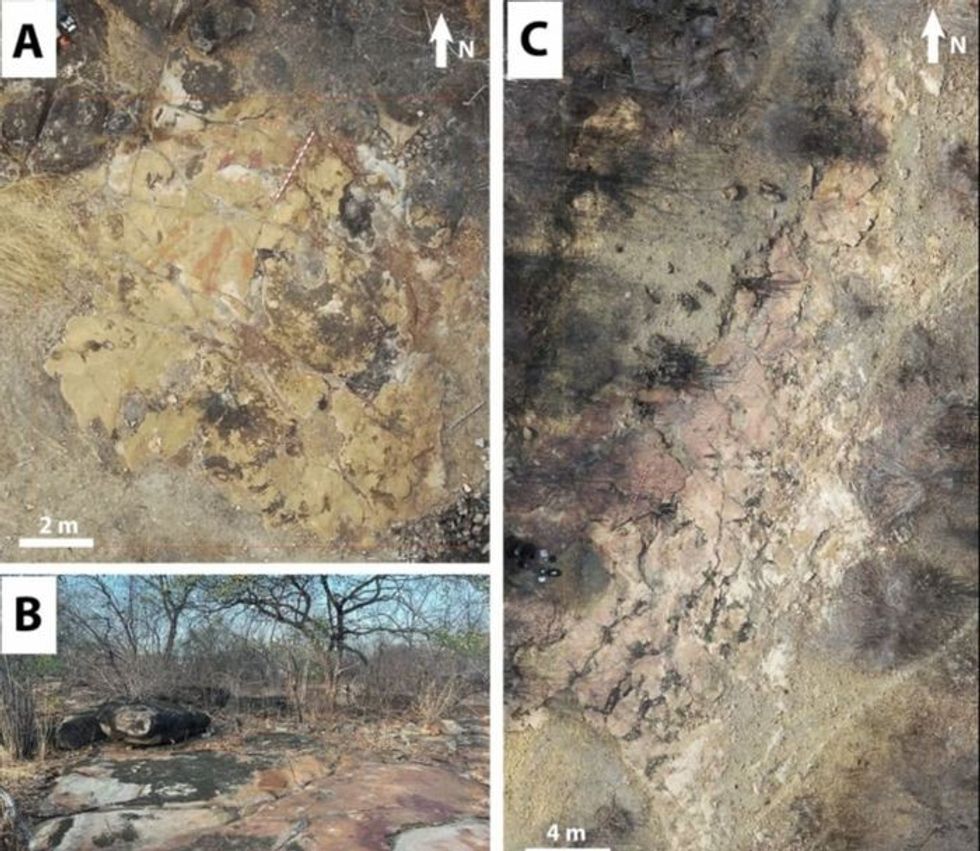 The Serrote do Letreiro site continues to provide rich insights into ancient life.
The Serrote do Letreiro site continues to provide rich insights into ancient life.

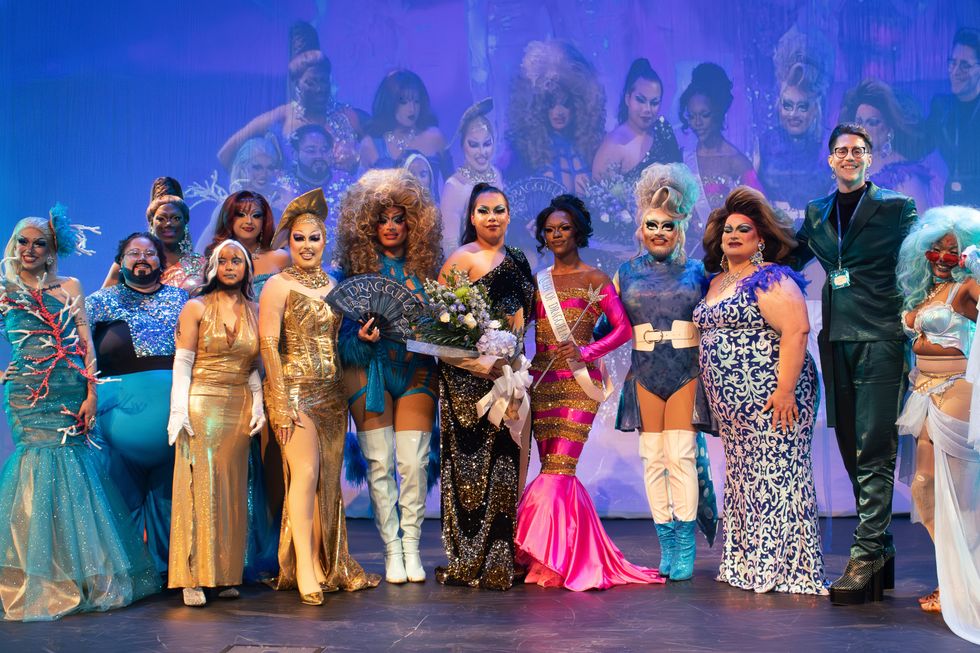 The contestants and hosts of Draggieland 2025Faith Cooper
The contestants and hosts of Draggieland 2025Faith Cooper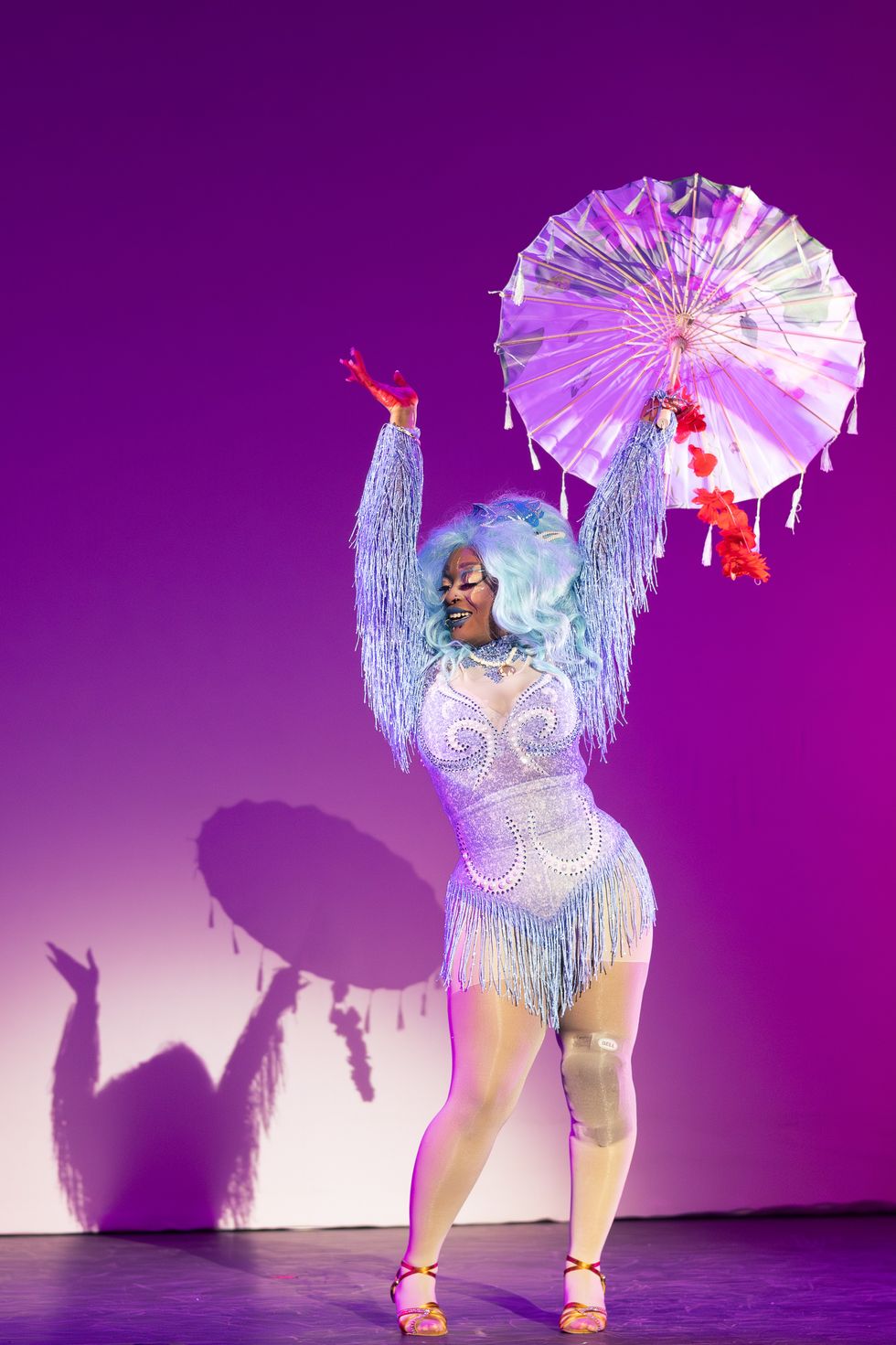 Dulce Gabbana performs at Draggieland 2025.Faith Cooper
Dulce Gabbana performs at Draggieland 2025.Faith Cooper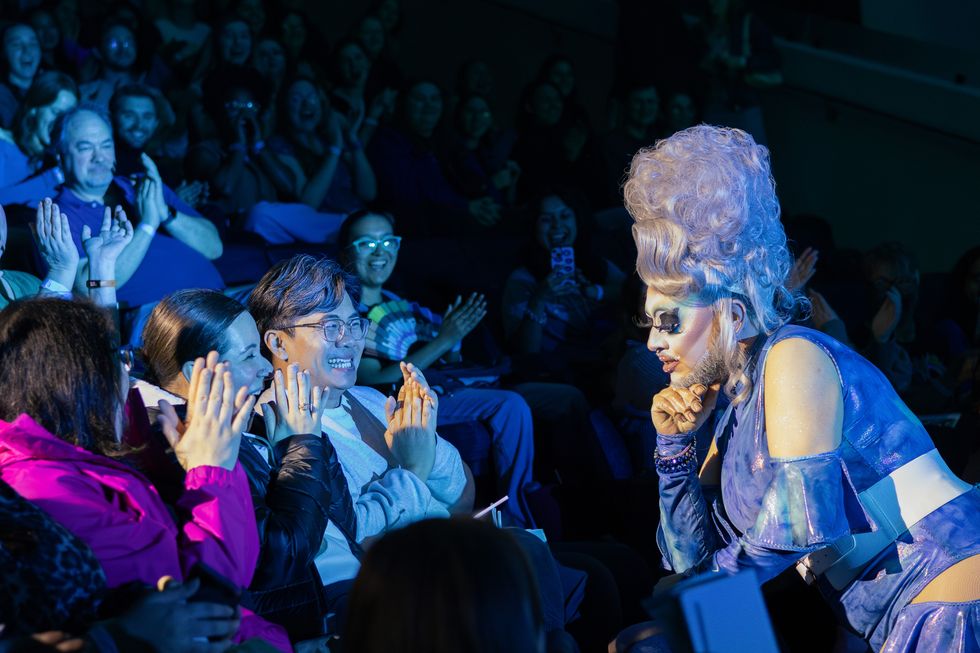 Melaka Mystika, guest host of Texas A&M's Draggieland, entertains the crowd
Faith Cooper
Melaka Mystika, guest host of Texas A&M's Draggieland, entertains the crowd
Faith Cooper


